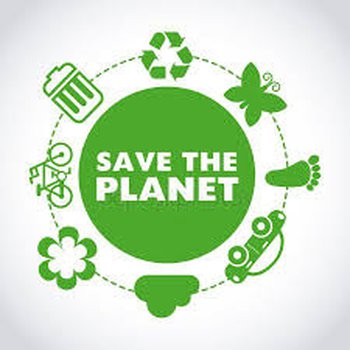From Down to Earth ( environmental weekly newletter from the Guardian).
To solve the climate crisis, we must rein in the wasteful wealthy
by Damien Gayle
“Eating just one billionaire would do more to prevent climate change than going vegan or never driving a car for the rest of your life.” So proclaimed a post on Extinction Rebellion’s Instagram last week.
XR has not previously been known for its class analysis (nor even now: “This is obviously a joke,” the group’s caption averred). And yet it hit home: the post has been liked 40,000 times, about as much as XR’s previous 11 posts combined.
The image was a meme of Lisa Simpson before an auditorium, crafted by an account called the Ragged Trousered Philanderer. But it encapsulates a serious developing shift in the narrative of climate activism: we can’t solve the climate crisis without solving the problem of inequality.
For decades, climate change has been understood by the public as a crisis in which we are all implicated. Environmental campaigns exhorted us all to turn off our lights, buy more fuel efficient cars, recycle as much as possible – our consumption had to be adapted to minimise our impact on the planet.
But it is becoming increasingly clear that such efforts, while by no means unnecessary, are less than a drop in the ocean. Nothing drove this home more this summer than another Instagram post: Kylie Jenner's picture of her and partner Travis Scott standing in front of two private jets, captioned: “you wanna take mine or yours?”
It was posted days after Jenner, it subsequently emerged, took her private jet on a flight that lasted just 17 minutes. That might not sound like much, but it was estimated to have belched a tonne of carbon into the atmosphere – about a quarter of the annual carbon footprint of the average person globally.
Jenner’s conspicuous carbon consumption became a catalyst for a wave of reporting on the use of private jets by the rich. And not just the super-rich. In the Guardian we reported on Disney’s marketing of a $110,000 round-the-world package holiday with a carbon price tag of 6.2 tonnes for each of its 75 paying guests. That’s about 20 times more than the 0.3 tonne average of someone in a low-income country, according to the World Bank.
Flying is without a doubt the most egregious example of carbon profligacy by the rich, according to Andreas Malm, professor of human ecology at Lund University, Sweden, and author of influential polemic How To Blow Up A Pipeline.
“If you as an individual consumer want to burn as much carbon as possible, emit as much CO2 as possible, what you do is go on a flying binge,” Malm says. “That’s the most CO2 intensive act of consumption you can engage in. It exceeds everything else, driving and meat eating and whatever – particularly since these are emissions that don’t fulfil any legitimate purpose and don’t serve any human need.”
Consumption like this has made the richest 1% of the world’s population responsible for more than twice as much carbon pollution as the poorest 50% – 3.1 billion people – in the last 25 years, according to Oxfam. And as inequality continues to grow, so will their disproportionate impact. By 2030, Oxfam predicts, the carbon footprints of the world’s richest 1% will be 30 times greater than the level compatible with the 1.5C goal of the Paris Agreement.
And yet that is not even half the story, since the impact of the world’s wealthiest people is not only their consumption, but in the realm of production, from where the super-rich obtain their wealth, says Matthew Huber, professor of geography at Syracuse university in New York.
In a new book, Climate Change as Class War, Huber sets out how the fossil fuel system is inextricably tied to an economic system that continually leads to greater concentration of wealth in the hands of a few. Yes, it’s true that Jenner, or Jeff Bezos or Elon Musk and others, are contributing to climate meltdown with their superyachts and private jets and the like – but what, Huber asks, about the people who sold them the fuel in the first place?
If there are lessons here for activists – and for anyone who is interested in tackling the climate crisis – Huber and Malm say change must start with the wealthiest and most powerful. But, says Malm, we cannot expect governments to do the work for us.
“All the governments I know of are beholden to these people, their taskmasters, if you like; the classes that they have to coddle the most,” Malm says. “That makes it extremely hard to envision any government moving against precisely these people, because that’s the people that are closest to.”
“If governments can’t do attack the most egregious instances of luxury emissions, then ordinary people will have to," he adds. "I think the next step for that kind of activism to go after private jets and super yachts and other monstrous machines for luxury emissions. It’s not that we’re done with SUVs, that campaign just needs to multiply and spread further and intensify. But there are more targets than SUVs.”
And so, it seems, that if we are serious about a future on a livable planet, eating billionaires might not be such a joke after all.


